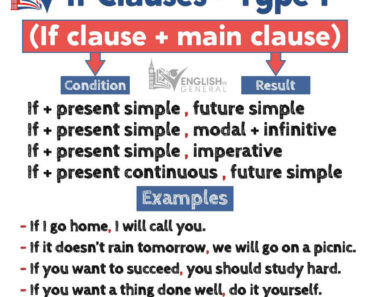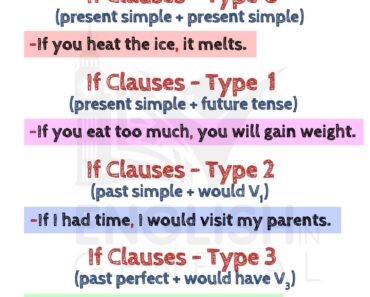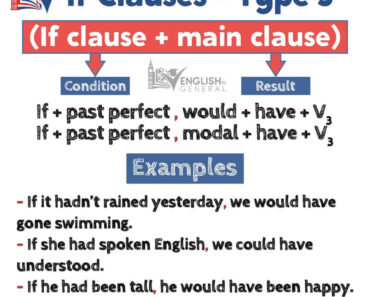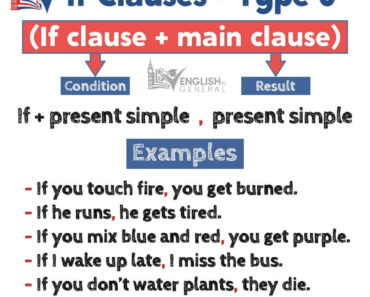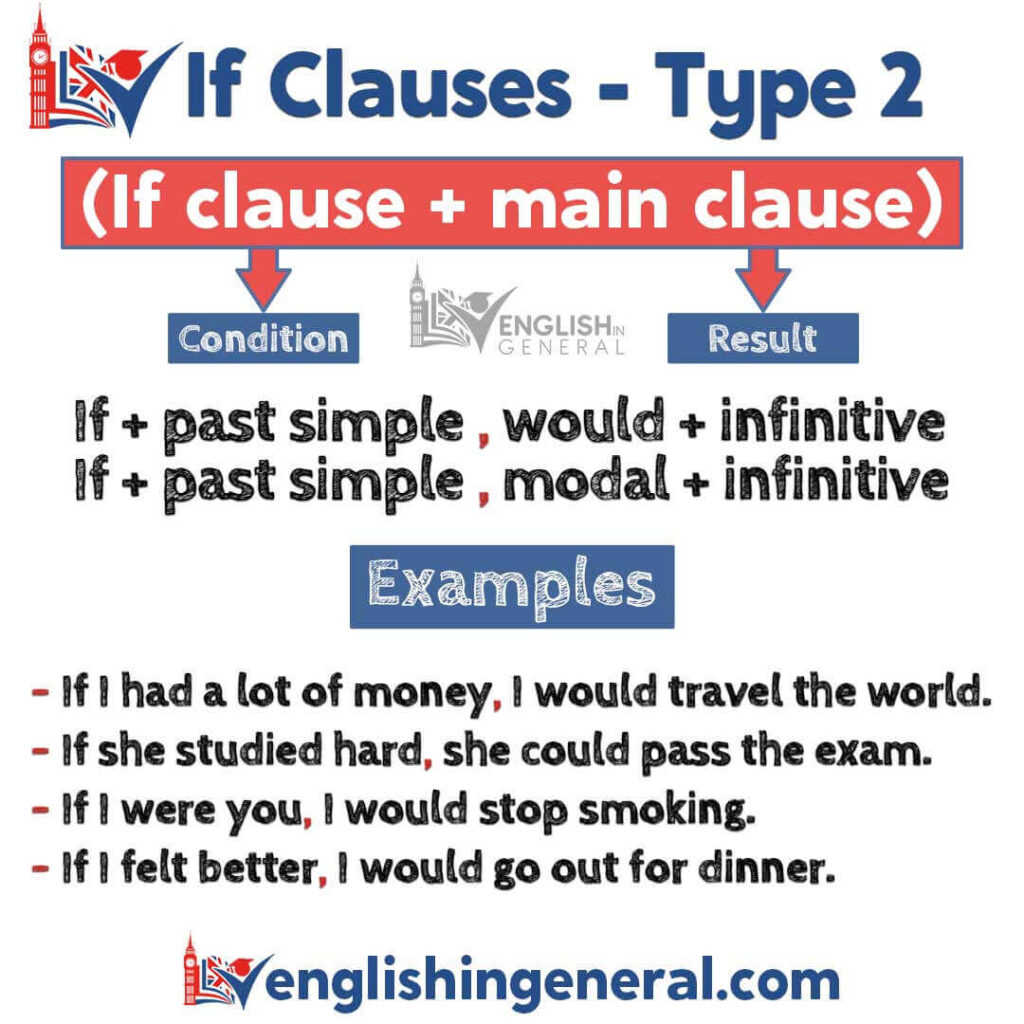
When do we use the second conditional sentence or if-clause type 2?
We generally use conditional clauses for ideas or situations that depend on another. So there is a condition attached to them. In particular, the second conditional sentence (abbreviated: 2nd conditional), which is also often called if-clause type 2, is used in the following cases:
Examples of using the second conditional sentence
… for circumstances that could arise due to a condition (which is more likely not to be fulfilled or impossible to fulfill):
“If Julie won the lottery, she would help a lot of people.” (If Julie won the lottery, she would help a lot of people.)
The condition (lottery win) could be met but is unlikely.
“Would you go to the park if you had an umbrella?”
The situation is unreal and is unlikely to happen.
“If Terry had wings, she would fly away.”
The condition (wing) is fictitious and cannot be met.
… to give advice. In this case, we use the phrase ‘If I were you’ (Subjunctive) in the if sentence:
“If Kathy were you, she would do it.” (If Kathy were you, she would.)
“I wouldn’t be so worried if I were you.” (If I were you, I wouldn’t be so concerned.)
To choose the right if-clause, you can follow the comparison of the conditionals.
How is the second conditional sentence (if-clause type 2) formed?
A conditional sentence always consists of two sub-sentences. One of them usually begins with the word “if” and specifies the condition, while the other gives the result. It doesn’t matter which of the two sub-clauses begins the sentence; however, if ‘if’ is at the beginning, a comma must be placed between the two sub-clauses.

